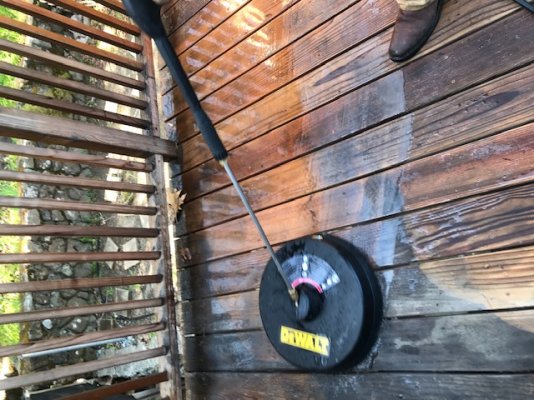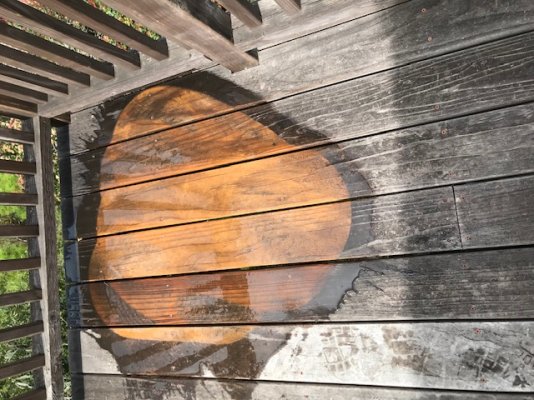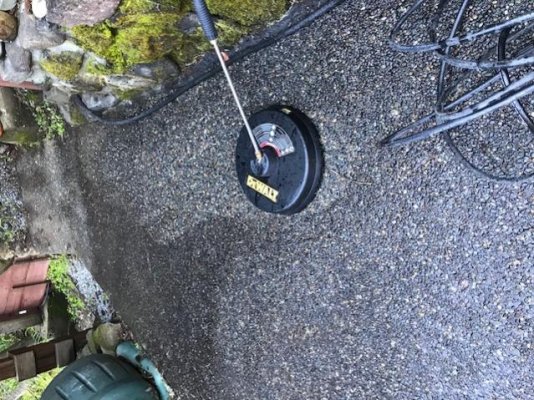Yes, you can pressure wash fiberglass hulls without damaging the gelcoat As others said above, depending on the power of your pressure washer, you probably should be careful what tip you are using. See rsn48's note above.
In a marina where I once worked, they had a 200 boat indoor rack storage barn. Nearly every boat that was fork lifted out of the water was pressure washed before going into the barn and on its assigned rack. No problems at all. The boats ranged from dinghies to 48 feet and some were over $1.5 million boats at the time, so we were not careless to say the least. The pressure washer never damaged them and did a great job keeping them clean. The right tip was no doubt important.
Also, every so often we would pull our rental and club boats out of the water and pressure wash them, too. It is very effective at taking the water line and various salt water growth/barnacles/etc. off the boats. Very efficient. I did not pay attention to what tip was on the pressure washer, as that was all it was used for and the right tip was always installed. I was careful around transducers, but we even cleaned them with the pressure washer on our rental and club boats.




